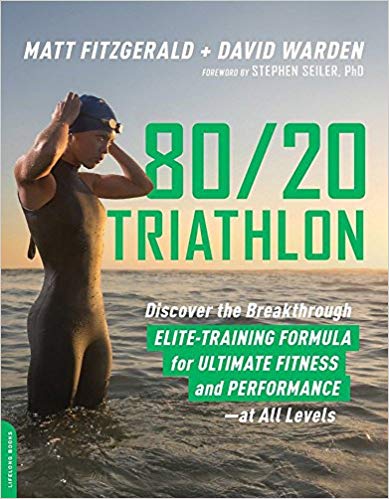Matt Fitzgerald is an acclaimed endurance sports coach, nutritionist, and author. His many books include The Endurance Diet, 80/20 Running, How Bad Do You Want It? , and most recently 80/20 Triathlon.
One hundred years ago, Scandinavian athletes dominated elite distance running. They trained rather differently from today’s elite runners. Hannes Kolehmainen is a good example. His primary fitness activity during the long Finnish winters was cross-country skiing, and even in the summer he did more walking than running. He was, however, among the first elite runners to adopt the then-innovative method of interval training, and that’s a big reason he was arguably the best runner in the world in the late 1910’s.
Fast-forward to 50 years ago. By then, the Lydiard revolution had occurred, and most of the top runners around the world were running 100-plus miles per week, mostly at low intensity. If this formula sounds eerily similar to how today’s top runners train, that’s because it is. Although some innovations have occurred within the past half-century (among them vastly improved strength-training techniques and depletion workouts), the pace of evolution in best practices in endurance training has slowed markedly since Kolehmainen’s day.
This was only to be expected. The human body is the human body. It’s not changing (much), and for this reason endurance training methods can’t just keep getting better and better ad infinitum. But this doesn’t mean they can’t get a little better than they are today. So, what might be different in 2068-9?
Let me begin to answer this question by stating what won’t be different. A high-volume, mostly low-intensity approach will still rule, because it simply cannot be improved upon. The only real alternatives—training less and doing everything fast—have been tried and they don’t work as well.
When making any kind of prediction about the future, the tendency is to assume that science and technology will be the main drivers of change. This could well be the case with respect to endurance training. For example, imagine a technology that dramatically accelerates recovery from training stress and thereby increases overall training tolerance (so that athletes can train even more). Earlier this year I tested a product that is supposed to do exactly this by sending energy impulses into the body. Does it work? Probably not. But it’s entirely possible that something along these lines that doeswork will come along.
As a coach, I’m especially hopeful that advances in science and technology will enable both coaches and athletes make better decisions about how to individualize, plan, and adjust training. Some experts anticipate improved genetic testing to revolutionize training program individualization, but I’m not among them. Genes tell us surprisingly little about what works best for an individual athlete. A much better picture is provided by starting an athlete off with a program that is based on what works best for athletes generally and then customizing and adjusting it based on ongoing measurements of how the athlete is doing. Already it’s possible to do this quite effectively by simply paying attention to performance in key workouts and how the athlete is feeling. But there’s certainly room for improvement.

For example, through proteomics, coaches and athletes might be able to determine when an athlete is heading for a setback and take measures to avoid it. More immediately, products like PWR Lab are using a similar approach (ongoing collection of vast amounts of relevant data) to predict when injuries are likely occur so that these can be minimized.
On the other hand, it’s entirely possible that the most impactful innovation in endurance training methods will be low-tech, albeit informed by science. These types of advances tend to come out of left field. In 1968, nobody imagined that intentionally depriving the body of carbohydrates before and during select workouts would be a best practice. Who’s to say that sleep-deprivation training (doing select workouts after skipping a night of sleep) won’t be a thing in 1968, having been found to upregulate certain genes related to mental fatigue resistance? Or perhaps endurance athletes will sometimes perform heavy deadlifts in place of active or passive recoveries between high-intensity intervals. And don’t rule out the possibility that elite runners will do some or all of their runs wearing weight vests of gradually decreasing weight over the course of a training cycle.
Unlikely, I know. If I had to wager on the endurance training innovation that is most likely to gain traction at the elite level within the next 50 years, I would put my money on some form of brain training. Specific contenders including zapping the brain with electromagnetic energy before hard workouts, performing mental exercises during certain workouts, and doing similar exercises at rest, between workouts.
May we all live long enough to find out!
END
About the the author – MATT FITZGERALD
Matt Fitzgerald is an acclaimed endurance sports coach, nutritionist, and author. His many books include 80/20 Triathlon, The Endurance Diet, 80/20 Running, and How Bad Do You Want It? Matt’s writing also appears regularly in magazines and on websites such as Women’s Running and competitor.com. His online training plans have helped thousands of athletes of all experience and ability levels achieve their goals. Certified by the International Society of Sports Nutrition, Matt has consulted for numerous sports nutrition companies and he is the creator of the Diet Quality Score (DQS) smartphone app. A lifelong athlete, he speaks frequently at events throughout the United States and internationally. Matt can be reached at matt@8020endurance.com.
Want a readymade or custom training program from one of the top coaches in the world. Follow this link: http://8020endurance.com/8020-run-plans/
80/20 training plans are provided via TrainingPeaks.com or FinalSurge.com. Both platforms offer comprehensive scheduling, logging, and analysis with outstanding web and mobile applications for all 80/20 plans. Our structured workouts plans, below, represent the latest training technology that makes completing a workout easier than ever. Structured workout run plans measure your intensity by either Pace,
Heart Rate, or
Power.

















